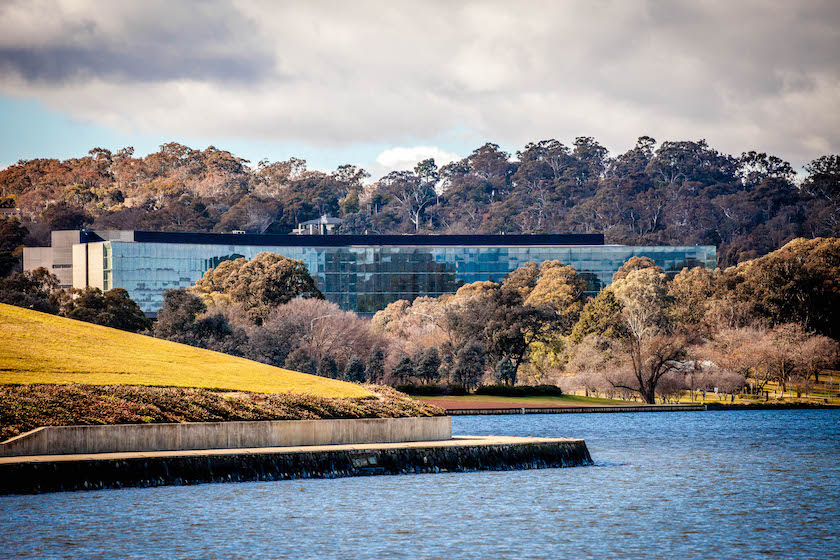National security

Where the spooks ply their trade: Ben Chifley Building, named after a Labor PM
How spooks operate – a beginner’s guide
A detached follower of the election campaign might believe that security is a defining difference between the main parties. Labor stands for the interests of China/Russia/ISIS/the Taliban/people smugglers/Bolsheviks, while the Coalition will protect us from all these imagined horrors – that’s how the story goes.
Free of Morrison’s and Dutton’s puerile rhetoric, Stan Grant has a serious essay on the politics of Australia’s security situation, in which he reports on a presentation to the Lowy Institute by Paul Symon, head of the Australian Secret Intelligence Service (ASIS): Australia's spy chief is worried democracy is bending toward tyranny. It's a struggle that will define the 21st century.
Within Grant’s article is a link to Symon’s hour-long presentation (32 minutes speech, 30 minutes discussion with the Lowy Institute’s Michael Fullilove), in which he talks mainly about the work of ASIS and similar agencies in other countries – a description that’s surprisingly informative for an agency whose hallmark is secrecy.
Symon’s presentation is mainly about generalities, and the distinction between intelligence and diplomacy. In the discussion with Fullilove he reveals some aspects of the security situation relating to the Solomon Islands, and discusses the use of declassification of intelligence in the west’s response to Russia’s war against Ukraine. He also makes the general assertion that in closed and authoritarian societies intelligence agencies tend to frame their findings in ways their political bosses wish to hear, while in open societies they report more frankly.
Grant’s article is in a wider context that spycraft. It’s also a comment on the liberals’ interpretation of Hegel’s historicism – that the world is on an irreversible march towards the endpoint of liberal democracy. In doing so he notes that in Francis Fukuyama’s most recent book Liberalism and its discontents he acknowledges that there have been some reversals on the way. “It isn't liberalism that has failed but we have failed it — with our intolerance, our moral decay, and the rise of democratic autocrats, strong men who exploit fear and anxiety and rule by dividing us”. (Did Fukuyama have any particular Australians in mind?)
Grant agrees with Fukuyama that democracy has left many behind, increasing the appeal of “illiberal democracy” (e.g. Brazil, Hungary) and of illiberal authoritarianism (China, Russia), but he does not believe we are inevitably headed to a liberal future. We need agencies like ASIS to help direct us to that future and to protect our democratic institutions from those foreign interests who want to weaken them. (He was too diplomatic to mention Russia’s involvement in the 2016 US election campaign or in aiding the Brexit movement.)
Symon was professionally deadpan, not once mentioning political parties in Australia. One can speculate on what he thinks about the Morrison government lying to the US government that AUKUS had bipartisan support, although it held information about the arrangement from Labor until the day before the public announcement. Morrison’s pathetically deceptive defence, that he feared Labor would leak it, suggests two possibilities. One is that AUKUS is so counter to Australia’s long-term security that any responsible person having learned about it would have had a moral obligation to try to scuttle it. The other possibility is that he is completely disrespectful of the party that established the US Alliance and that saw Australia through the conflicts of 1939-45 when his own party’s conservative predecessor, the UAP, sought to subjugate our interests entirely to those of the UK.
His politicization of security puts us all at risk.